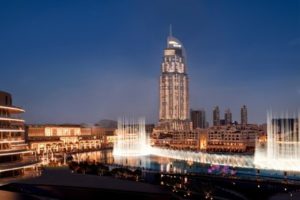UAE Ranks Highest Globally In Halal Tourism Spending
The UAE ranks highest globally in halal tourism spending with an estimated $17.6 billion spent by UAE residents outside the country during 2017, new analysis from Dubai Chamber of Commerce and Industry has revealed.
Saudi Arabia and Kuwait ranked second and third, respectively, according to the analysis which was based on recent data from Mastercard and the World Travel & Tourism Council (WTTC). According to the findings, Saudi tourists spent $16.1 billion in 2017, while Kuwaiti travellers spent $10.4 billion during the same year.
The UAE was named as a destination of choice for Muslim travellers due to several key factors including its competitive business environment, wide variety of travel and tourism activities, advanced ICT readiness and world-class airport infrastructure.
The analysis was released ahead of the Global Islamic Economy Summit (GIES) 2018, which is set to be held in Dubai on 30th-31st October under the patronage of His Highness Sheikh Mohammed bin Rashid Al Maktoum, the Vice President, Prime Minister and Ruler of Dubai.
GIES 2018, the world’s largest and most comprehensive forum dedicated to the Islamic economy, will bring together influential policymakers and experts from around the world to address key challenges and opportunities in the Islamic economy. The high-level summit is being jointly organised by Dubai Chamber and the Dubai Islamic Economy Development Centre, DIEDC, with Thomson Reuters serving as a Strategic Partner.
According to the findings, spending in the global Muslim-travel segment is currently valued at an estimated $180 billion. This figure is forecast to reach $220 billion by 2020, while the number of Muslim travellers globally is expected to increase from the current 131 million to 156 million by the same year.
During 2017, Muslim travellers spent an estimated average of $1,374 per person, with this amount projected to increase to $1,410 by 2020. According to the analysis findings, development in the segment has been fuelled by demographic and socioeconomic factors, such as the growth in the world’s Muslim population and the rise of the middle-class in Muslim majority countries. Other growth drivers include improved access to travel information and the increasing availability of Muslim-friendly travel services and facilities.
Majid Saif Al Ghurair, Chairman of Dubai Chamber and member of DIEDC, said, “Halal tourism is one of the main pillars supporting the continued growth of the global Islamic economy which continues to develop and diversify. The upcoming Global Islamic Economy Summit in Dubai will offer an ideal opportunity to take a closer look at new opportunities and challenges that are emerging in this fast-changing sector.”
He stressed that the analysis prepared by the Dubai Chamber aims to shed light on key trends reshaping halal industries and the growing importance of halal tourism, adding that the findings also enhance Dubai’s position as a capital for the global Islamic economy.







